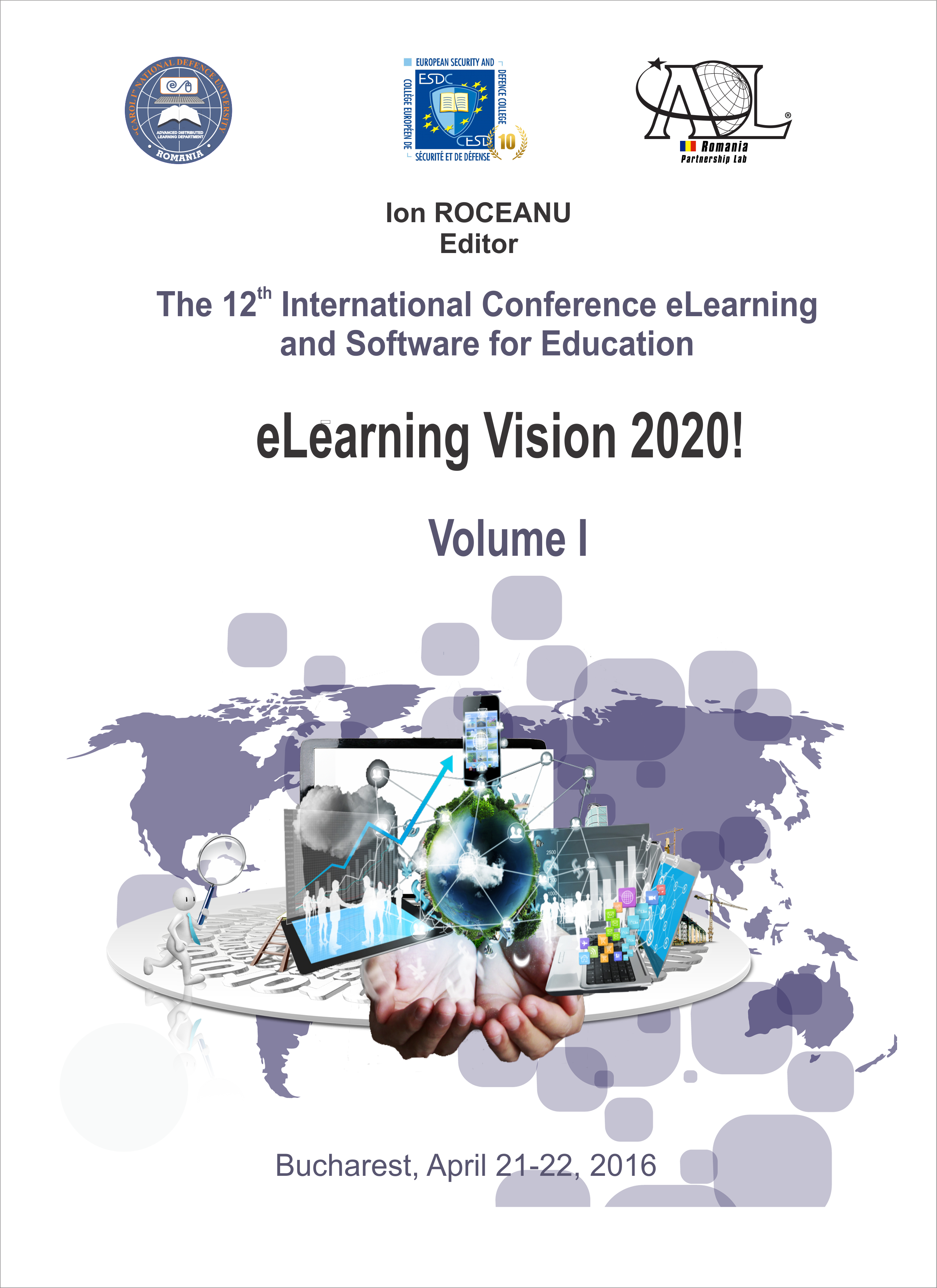BUSINESS INTELLIGENCE IN eLEARNING
BUSINESS INTELLIGENCE IN eLEARNING
Author(s): Aida Rodica PopaSubject(s): Business Economy / Management, ICT Information and Communications Technologies, Sociology of Education
Published by: Carol I National Defence University Publishing House
Keywords: Business Intelligence; eLearning; learning process;
Summary/Abstract: In a society which is currently very dynamic, where the time resource is declining in the lives of people compared with their increasing need of knowledge and access to educational resources, the eLearning platforms have become increasingly necessary. Accessibility is the main feature through which the eLearning platforms are distinguished. These can be accessed regardless of place or time through a device and, if applicable, an Internet connection. The learning process experiences new dimensions thanks to eLearning industry development. Consequently, the platforms whose includes learning management systems (LMS) have become extremely numerous, and the options for those interested in such a method are numerous and varied. Monitoring the activity and results also requires a special attention, serving to highlight both the strengths and the aspects less developed within the platform. Thus the implementation of Business Intelligence in the eLearning process can be successfully used for managing the behavior of learners. Moreover, this can be used to analyze the opinion of the learner about the performance of the eLearning platform. Besides, Business Intelligence can be used in this context also for evaluations about courses and exams structures and measuring their effectiveness in the learning process. This paper aims to highlight the usefulness of Business Intelligence in the eLearning platforms by presenting reports and analysis for the managers of the platforms to increase performance, efficiency and satisfaction among users. The study aims to present how to implement Business Intelligence in eLearning platforms and their impact on decision making process, implicitly on the future developments and the satisfaction of user requirements about content and presentation.
Journal: Conference proceedings of »eLearning and Software for Education« (eLSE)
- Issue Year: 12/2016
- Issue No: 01
- Page Range: 239-242
- Page Count: 4
- Language: English

